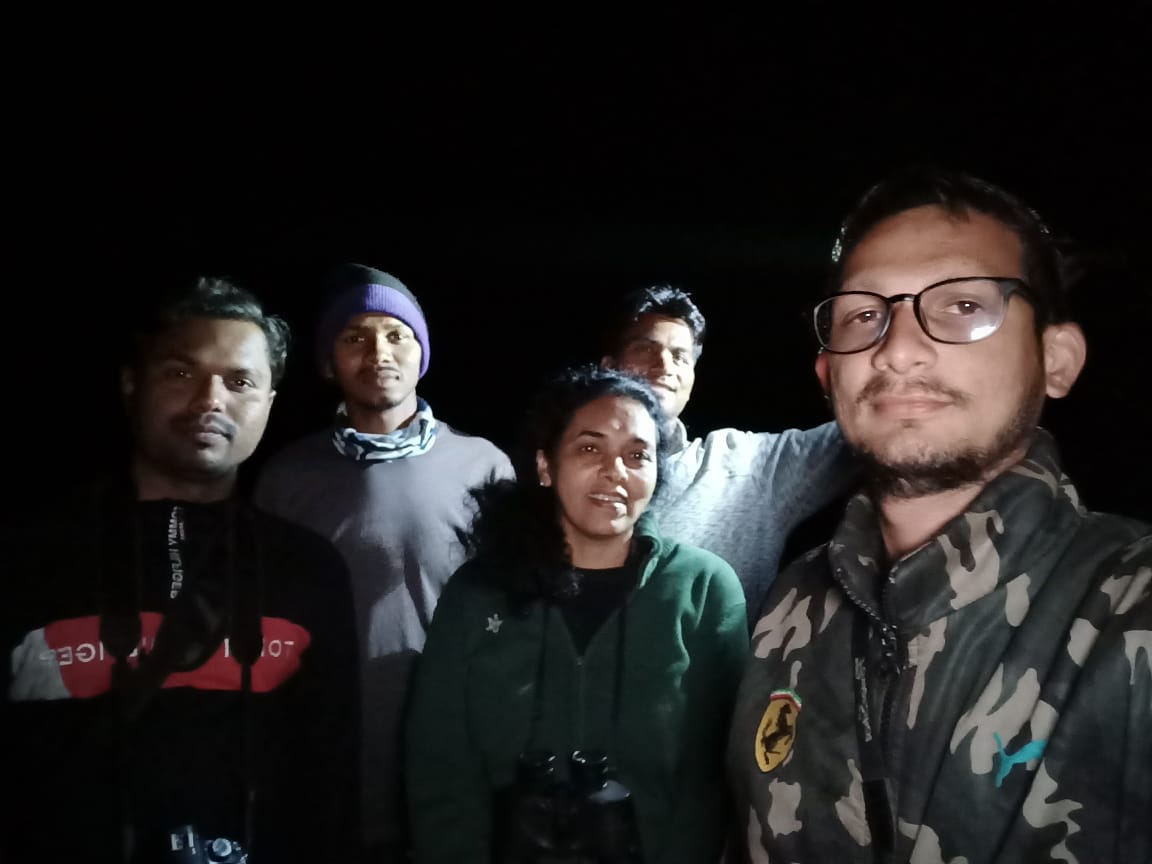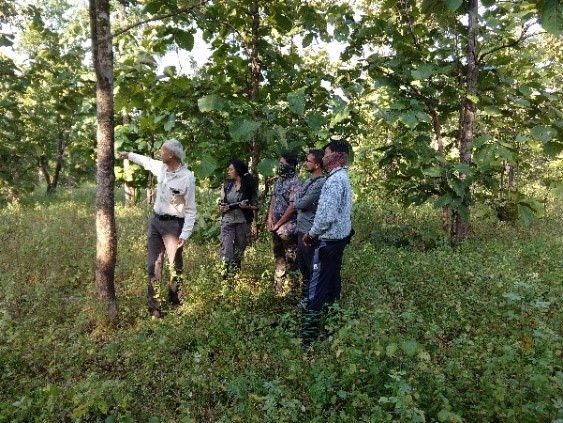A STUDY OF ECOLOGY
A Study of Ecology, Distribution and Demography of the Critically Endangered Forest Owlet Heteroglaux blewitti in Burhanpur and Khandwa Forest Divisions, Madhya Pradesh awarded to Wildlife Research and Conservation Society, Pune. Principal Investigator: Dr. Prachi Mehta.
The purpose of this long term study is to understand ecological requirement of Forest Owlet and to assist the Madhya Pradesh Forest Department in planning a suitable habitat management programme for conservation of the Critically Endangered Forest Owlet in Madhya Pradesh.
This study commenced in December 2012 and preliminary survey was carried out to assess the distribution of the Forest Owlet in Khandwa and Burhanpur Districts of Madhya Pradesh. From December to March 2013, 50 grids of 2 km x 2km were surveyed and 27 individuals including 2 juvenile forest owlets were located in Khandwa District. From March to June 2013, East Kalibhit Range of Khandwa Division was selected as an intensive study area. At Present 19 grids are being monitored for assessing occupancy of Forest Owlet in the area.

Dr. Prachi Mehta and her assistants in the field

Dr. Prachi Mehta and her assistants in the field
Selected areas will be surveyed extensively to determine site occupancy of Forest Owlet and to understand their habitat requirement, breeding status and nesting success. These areas are being monitored during breeding seasons (March 2013-June 2013 and October 2013-June 2014) to understand how many pairs occupy the areas and how many of them breed in the same area.
Dr. Prachi Mehta and the research team have colour-banded Forest Owlets to understand which Forest Owlet pairs are successful breeders and what is the success rate among the juveniles. Strict protocols have been followed for colour-banding procedures and giving each bird a unique identity so that they can be identified as individuals on subsequent encounters just by observing them from far.
From March to December 2013 ten Forest Owlets have been colour-banded.
Future work plan will include:-
- Continuation of occupancy survey in selected grids to finalize site-occupancy by the Forest Owlet.
- Vegetation Monitoring in occupied and non-occupied plots.
- Assessing impact of biotic pressures and timber logging on Forest Owlet occupied sites.
- Monitoring banded birds and colour-banding the remaining ones in the study area.
- Monitoring nests, survival of hatchlings and dispersal of individuals in the area.
- Studying Nest-site selection of Forest Owlet in the study area.
- Studying the diet of Forest Owlet in the study area.